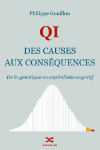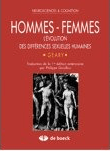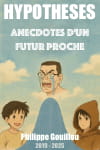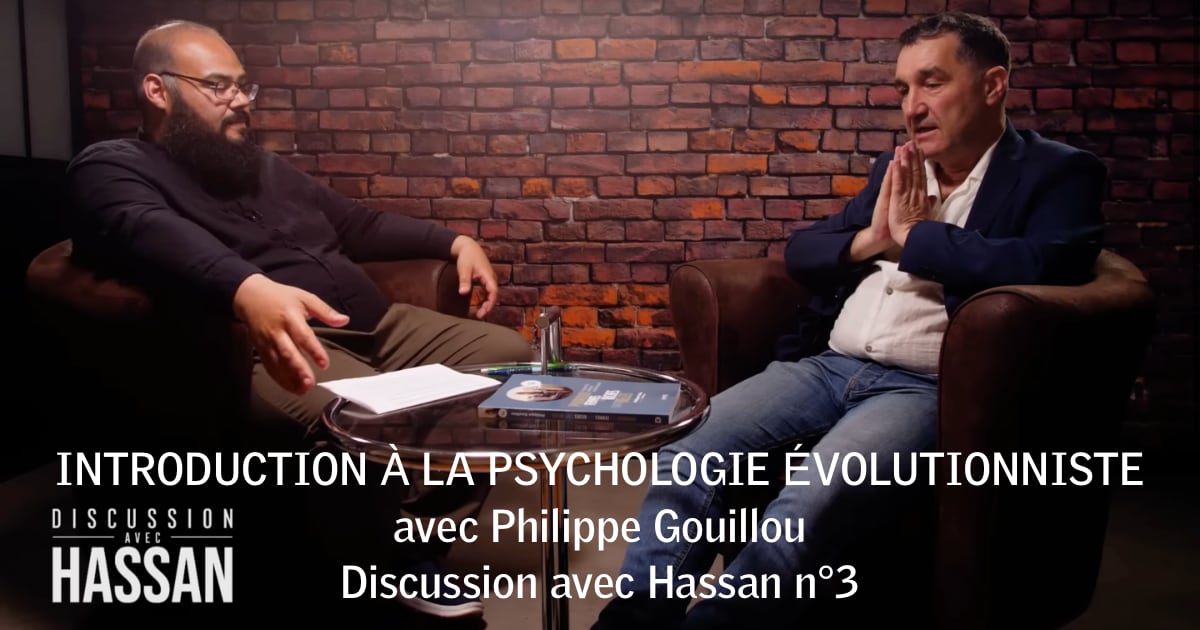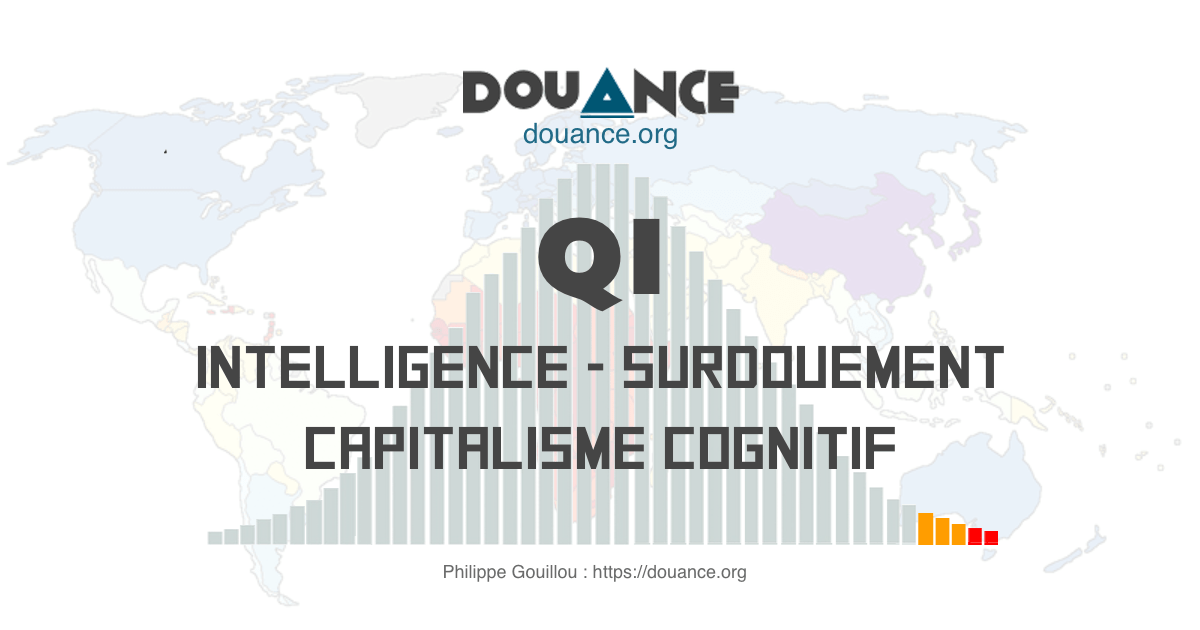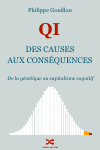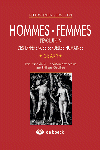En septembre 2004, le Professeur Robert AUMANN (futur Prix Nobel 2005 d’économie), a donné 3 jours d’interview à son ancien doctorant et toujours collaborateur Sergiu HART. J’en traduis ci-après un court extrait (page 56-57) où il montre que l’on peut modéliser par la Théorie des Jeux (ici : le Paradoxe du Maître Chanteur) un des avantages qu’apporte la religion. Il ne fait plus de doute maintenant que la religiosité a été sélectionnée chez l’homme, c’est-à-dire qu’elle a apporté des avantages en termes de fitness (transmission des gènes) à ceux qui en bénéficiaient. Cet exemple permet de bien comprendre un de ces avantages.
Référence
Hart, S., & Aumann, R. (2005). An interview with Robert Aumann. Macroeconomic Dynamics, 1-65. Retrieved from http://www.ma.huji.ac.il/hart/abs/aumann.html
Traduction personnelle
"HART : Ici en Israël, nous avons malheureusement des guerres et conflits en permanence.
Une des "Tables rondes" du Rationality Center – où les participants se jettent des idées de manière très informelle – était sur les conflits internationaux. Vous y avez présenté quelques apports intéressants de la Théorie des Jeux.
AUMANN : Un d’entre eux était le Paradoxe du Maître Chanteur. Anne et Bob doivent diviser une centaine de dollars. Ce n’est pas un jeu à ultimatum, ils peuvent discuter librement. Anne dit à Bob : "Ecoute, je veux 90 de ces cent. Accepte ou refuse, je ne sortirai pas de cette pièce avec moins que 90 dollars". Bob répond : "Attends, c’est exagéré. On a 100 dollars, on n’a qu’à se les partager la moitié chacun." Anne répond que non. Anne – le "Maître Chanteur" – est peut être irrationnelle. Mais Bob, s’il est rationnel, va accepter ces 10 dollars et ce sera fini.
HART : La question est maintenant de savoir si elle peut se tenir à ces 90, parce que sinon, bien sûr, Bob dira : "Tu sais quoi : 50/50, tu acceptes ou tu laisses." Pour que ça marche, Anne doit s’engager avec crédibilité.
AUMANN : En d’autres termes il n’est pas suffisant pour elle de juste le dire. Elle doit être crédible, et alors Bob fera qu’il sera rationnel pour lui d’accepter les 10. La difficulté est que peut-être Bob aussi peut avec crédibilité s’engager à ne pas accepter moins que 90. Ainsi nous avons un paradoxe : une fois que Anne s’est engagée crédiblement à ne pas accepter moins que 90, Bob est rationnellement motivé à prendre les 10. Mais alors Anne est rationnellement motivée à faire un tel engagement. Mais Bob pourrait aussi faire le même engagement et si tous les deux le font il n’est pas rationnel, parce que personne n’obtient rien. C’est le Paradoxe du Maître Chanteur. Il est reconnu en théorie des jeux, donc, qu’il n’est peut-être pas si rationnel pour celui qui reçoit le chantage de l’accepter. Quelle application en avons-nous ici en Israël ?
Laissez-moi vous raconter cette histoire vraie. Un officier haut gradé est venu un jour à mon bureau au Center for Rationality pour discuter avec moi de la situation avec la Syrie et le Golan. C’était un sujet chaud à cette époque. Il m’a expliqué que les Syriens considèrent cette terre comme sainte, et qu’ils ne vont pas en donner un centimètre. Quand il m’a dit ça, je lui ai parlé du Paradoxe du Maître Chanteur. Je lui ai dit que l’utilisation par les Syriens du terme "Sainte", terre sainte, est une forme d’engagement. En fait, ils doivent réellement se convaincre eux-mêmes qu’elle est sainte, et c’est ce qu’ils font. Exactement comme dans le Paradoxe du Maître Chanteur, nous pourrions aussi dire qu’elle est sainte, mais nous ne pourrions pas nous en convaincre. Un de nos problèmes est que le terme "saint" n’existe plus dans notre vocabulaire pratique quotidien. Il n’existe que dans les cercles religieux. Nous acceptons la sainteté chez d’autres personnes et nous ne voulons pas la promouvoir de notre côté. Le résultat est que que nous sommes désavantagés parce que l’autre côté peut invoquer la sainteté, alors que nous l’avons supprimée de notre arsenal d’outils."
Hart, S., & Aumann, R. (2005). An interview with Robert Aumann. Macroeconomic Dynamics, 1-65. Retrieved from http://www.ma.huji.ac.il/hart/abs/aumann.html
[Tweet "Religiosité, Terre Sainte et Théorie des Jeux : le paradoxe du Maître Chanteur par Robert Aumann"]
Version originale
"H: Here in Israel, we unfortunately have constant wars and conflicts.
One of the "round tables" of the Rationality Center—where people throw ideas at each other very informally—was on international conflicts. You presented there some nice game-theoretic insights.
A: One of them [some nice game-theoretic insights presented by Aumann] was the blackmailer’s paradox. Ann and Bob must divide a hundred dollars. It is not an ultimatum game; they can discuss it freely. Ann says to Bob, look, I want ninety of those one hundred. Take it or leave it; I will not walk out of this room with less than ninety dollars. Bob says, come on, that’s crazy. We have a hundred dollars. Let’s split fifty-fifty. Ann says, no. Ann—"the blackmailer"—is perhaps acting irrationally. But Bob, if he is rational, will accept the ten dollars, and that’s the end.
H: The question is whether she can commit herself to the ninety. Because if not, then of course Bob will say, you know what, fifty-fifty. Now you take it or leave it. For this to work, Ann must commit herself credibly.
A: In other words, it’s not enough for her just to say it. She has to credible; and then Bob will make it rationally accept the ten. The difficulty with this is that perhaps Bob, too, can credibly commit to accepting no less than ninety. So we have a paradox: once Ann credibly commits herself to accepting no less than ninety, Bob is rationally motivated to take the ten. But then Ann is rationally motivated to make such a commitment. But Bob could also make such a commitment; and if both make the commitment, it is not rational, because then nobody gets anything. This is the blackmailer’s paradox. It is recognized in game theory,therefore, that it is perhaps not so rational for the guy on the receiving end of the threat to accept it. What is the application of this to the situation we have here in Israel?
Let me tell you this true story. A high-ranking officer once came to my office at the Center for Rationality and discussed with me the situation with Syria and the Golan Heights. This was a hot topic at the time. He explained to me that the Syrians consider land holy, and they will not give up one inch. When he told me that, I told him about the blackmailer’s paradox. I said to him that the Syrians’ use of the term "holy," land being holy, is a form of commitment. In fact, they must really convince themselves that it’s holy, and they do. Just like in the blackmailer’s paradox, we could say that it’s holy; but we can’t convince ourselves that it is. One of our troubles is that the term "holy" is nonexistent in our practical, day-to-day vocabulary. It exists only in religious circles. We accept holiness in other people and we are not willing to promote it on our own side. The result is that we are at a disadvantage because the other side can invoke holiness, but we have ruled it out from our arsenal of tools."
Hart, S., & Aumann, R. (2005). An interview with Robert Aumann. Macroeconomic Dynamics, 1-65. Retrieved from http://www.ma.huji.ac.il/hart/abs/aumann.html



